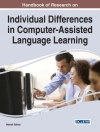New Labour has concentrated many of its social policy initiatives in reinvigorating the family, community and work in the paid labour market. But just how ‘new’ are the ideas driving New Labour’s policy and practice?
In this book, Simon Prideaux shows how New Labour has drawn on the ideas and premises of functionalism, which dominated British and American sociological thought during the 1940s, 1950s and 1960s.
The book provides an accessible overview of the theories that underpin the policies of New Labour, including the often labyrinthine theories of Talcott Parsons, Amitai Etzioni and Anthony Giddens; examines the ideas of Charles Murray and John Macmurray, philosophers publicly admired by Tony Blair; looks at the sociological origin of debates and controversies that surround the provision of welfare in both the US and UK and considers the alienating effects that New Deal schemes may have in Britain today.
Not so New Labour’s innovative approach to the analysis of social policy under New Labour will be invaluable to academics, students and researchers in social policy, sociology, politics and applied social studies.
Table des matières
Introduction; The role and transmission of ideas in policy; Functionalism and society: the American interpretation of Durkheim; From organisational theory to the New Communitarian movement; John Macmurray, the Parsonian legacy and Blair’s communitarianisms; Organisational theory and managerialisation: the symbiotic rise of an ‘accountancy mentality’; Norms and the dysfunctional underclass: a convenient yet complementary critique form the New Right; ‘The Third Way’, ‘opportunity’ and functionalist remedies; ‘Workfare’ in practice: alienated lessons from the past, present and future; Where to now, Mr Blair? A conclusion.
A propos de l’auteur
Simon Prideaux is an Associate Professor of Social Policy, Disability and Crime at the University of Leeds, UK. He has written widely on social policy and has a growing profile within disability studies. His interests take in comparative access policy, welfare discourses, conditionality and political ideologies.












